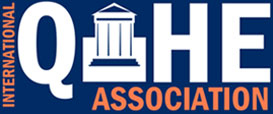QAHE ensures the credibility and reliability of its accreditation services through a rigorous and transparent evaluation process. Here are some key aspects of QAHE's approach:
Standardized Criteria: QAHE establishes comprehensive and internationally recognized training accreditation standards that cover various aspects of education quality. These criteria are developed in consultation with experts in the field, educational institutions, and other stakeholders. The standards encompass areas such as curriculum design, teaching methodologies, faculty qualifications, student support services, infrastructure, and assessment practices.
Independent Evaluation: QAHE employs a team of qualified and experienced evaluators who conduct thorough assessments of educational institutions and programs seeking accreditation. These evaluators are subject matter experts and follow a systematic evaluation process based on the established accreditation standards. The evaluators review documentation, conduct site visits (if applicable), and engage in interviews with key stakeholders, including faculty, administrators, and students.
Peer Review: QAHE's programmatic accreditation process includes a peer review component, where institutions and programs are evaluated by their peers in the education community. This ensures that the evaluation process is unbiased and reflects the expertise and insights of professionals working in the same field. Peer review adds an additional layer of credibility and validity to the accreditation process.
Ongoing Monitoring and Review: Accredited institutions are subject to regular monitoring and review by QAHE to ensure that they continue to meet the established standards of quality. This includes periodic evaluations, follow-up visits, and assessment of any changes or updates made by the institution. Ongoing monitoring helps maintain the credibility and reliability of the accreditation status and ensures that institutions uphold the required standards over time.
Transparency and Accountability: QAHE maintains a transparent accreditation process by providing clear guidelines, criteria, and expectations to institutions and programs seeking accreditation. The evaluation process and accreditation outcomes are communicated to the institutions in a comprehensive and timely manner. Furthermore, QAHE encourages feedback from accredited institutions, ensures confidentiality of sensitive information, and addresses any concerns or complaints through appropriate channels.
Continuous Improvement: QAHE is committed to continuous improvement in its accreditation services. The organization regularly reviews and updates its accreditation standards to align with emerging trends, advancements in education, and changing needs of students and society. QAHE also engages in research and collaboration with educational experts to enhance the effectiveness and relevance of its accreditation services.
By adhering to these principles and practices, QAHE establishes itself as a credible and reliable accreditation body, ensuring that institutions and programs recognized by QAHE have met rigorous standards of quality in education.





Comments